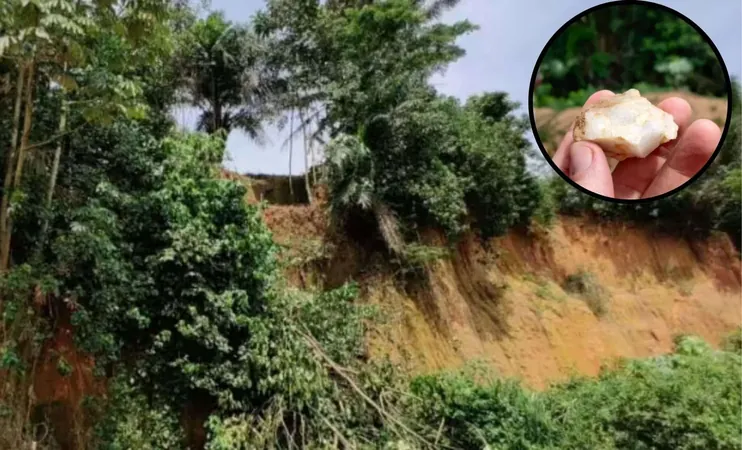
Revolutionary Discovery: Ancient Tools Uncover 150,000-Year-Old Secrets in African Rainforests!
2025-04-09
Author: Kai
A Groundbreaking Revelation in Human History
In a stunning breakthrough, archaeologists have unearthed tools in West Africa that date back a jaw-dropping 150,000 years, completely overturning our understanding of early human habitation. This pivotal finding, revealed in a study published in the prestigious journal Nature, suggests that our ancestors thrived in lush tropical rainforests long before scientists believed they could.
Rewriting the Timeline of Rainforest Dwellers
This game-changing discovery drastically alters the accepted timeline of human presence in rainforests. Lead researcher Eslem Ben Arous from Spain's National Centre for Human Evolution Research remarked, "Prior to our study, the oldest reliable evidence of rainforest habitation was thought to be around 18,000 years ago in Africa, with Southeast Asia holding the oldest records of 70,000 years. We've now pushed those boundaries back by more than double!"
Advanced Technology Drills Down into the Past
The excavation at the Bété I site showcased the power of modern technology in archaeological research. James Blinkhorn from the Max Planck Institute of Geoanthropology highlighted the importance of state-of-the-art methods, stating, "With the help of Professor Guédé, we revisited the original trench using techniques that simply weren’t available decades ago. This advancement has allowed us to solidify evidence of early human life in these challenging rainforest environments."
A Tragic Blow to Archaeological Preservation
Sadly, the Bété I site, once a treasure trove of ancient artifacts, faced destruction due to mining activities amid the COVID-19 pandemic, despite being designated a protected area. This distressing loss underscores the ongoing battle to safeguard archaeological sites against modern economic pressures.
Ecological Diversity: The Key to Our Origins
The ramifications of this discovery extend far beyond mere timelines; it sheds light on the intricate tapestry of human evolution. Professor Eleanor Scerri from MPI-GEA explained, "Our findings reveal that ecological diversity is fundamental to our species. Different human populations inhabited various ecosystems, adapting in ways we had not previously recognized."
Early Humans: Masters of Adaptation
The evidence suggests that early humans were not confined to one environment but flourished across radically diverse ecosystems in Africa, adapting earlier than we ever imagined. Scerri noted, "This challenges the simplistic view of human evolution, showcasing our ancestors' remarkable adaptability long before they reached familiar habitats."
A Call to Action for Preservation
The loss of the Bété I site serves as a grim reminder of the delicate balance between preserving our history and pursuing economic development. Professor Scerri lamented, "Despite receiving protected status, the site was lost. This highlights urgent issues regarding the safeguarding of our archaeological heritage against exploitation."


 Brasil (PT)
Brasil (PT)
 Canada (EN)
Canada (EN)
 Chile (ES)
Chile (ES)
 Česko (CS)
Česko (CS)
 대한민국 (KO)
대한민국 (KO)
 España (ES)
España (ES)
 France (FR)
France (FR)
 Hong Kong (EN)
Hong Kong (EN)
 Italia (IT)
Italia (IT)
 日本 (JA)
日本 (JA)
 Magyarország (HU)
Magyarország (HU)
 Norge (NO)
Norge (NO)
 Polska (PL)
Polska (PL)
 Schweiz (DE)
Schweiz (DE)
 Singapore (EN)
Singapore (EN)
 Sverige (SV)
Sverige (SV)
 Suomi (FI)
Suomi (FI)
 Türkiye (TR)
Türkiye (TR)
 الإمارات العربية المتحدة (AR)
الإمارات العربية المتحدة (AR)